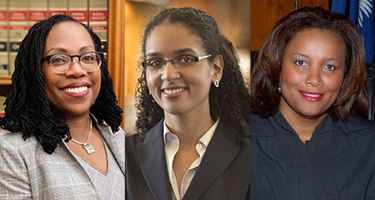In a sweeping July executive order containing 72 directives to more than a dozen federal agencies, President Biden looks to promote greater competition in the economy. One of the directives, about reining in the use of non-compete agreements, concerns a subject that’s long been a source of discomfort for many lawyers.
“Even though we all cringe a bit about non-competes, we continue to allow them under controlled circumstances,” says David Carr, a partner with the Indianapolis firm Ice Miller.
Mr. Carr, who’s been practicing for 37 years, notes that he’s represented both sides of the issue. “One day we’re trying to enforce a non-compete and the next day we’re defending against them.” For years he’s shared a presentation with clients outlining why they should be used only in certain situations.
Further Limits Expected
The regulation of non-compete agreements has always been an exclusive matter of state law, and three states bar them entirely, while a dozen more place certain limitations on their use. While there has never been a federal law regulating non-compete agreements—though several such bills have been introduced—Biden’s executive order directs the Federal Trade Commission to restrict them as a matter of agency policy. There’s every reason to believe the FTC, chaired by antitrust warrior Lina Khan, will do so aggressively.
In a recent letter to the White House and the FTC, more than 50 prominent trade secret lawyers outlined what they said is a real-world approach to regulating non-competes that balances competing interests while not depending too heavily on what it called “inconclusive academic studies.”
Pointing to an industry study that found more than half of ex-employees admit to stealing confidential employer secrets, the lawyers argued that “when used appropriately, noncompetition agreements can be an extremely effective tool to prevent the harm caused by this type of information exfiltration.”
The Upshot
While the FTC is extremely unlikely to ban non-compete agreements, look for the agency to apply certain limits, such as the use of non-competes for the lowest-paid employees.
John Ettorre is an Emmy-award-winning writer, based in Cleveland. His work has appeared in more than 100 publications, including the New York Times and the Christian Science Monitor.
In a sweeping July executive order containing 72 directives to more than a dozen federal agencies, President Biden looks to promote greater competition in the economy. One of the directives, about reining in the use of non-compete agreements, concerns a subject that’s long been a source of discomfort for many lawyers.




















